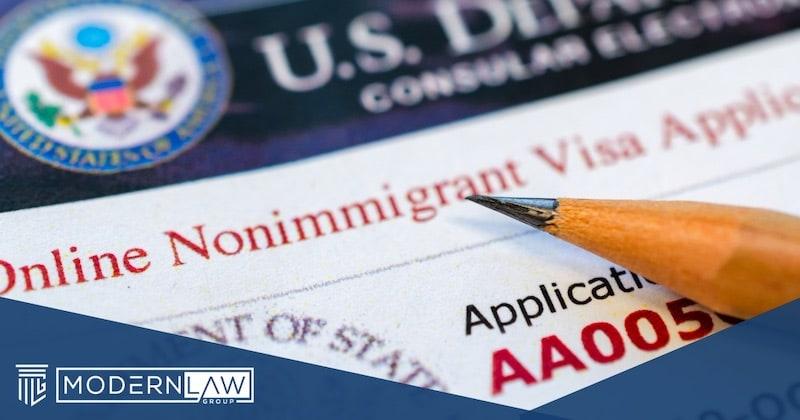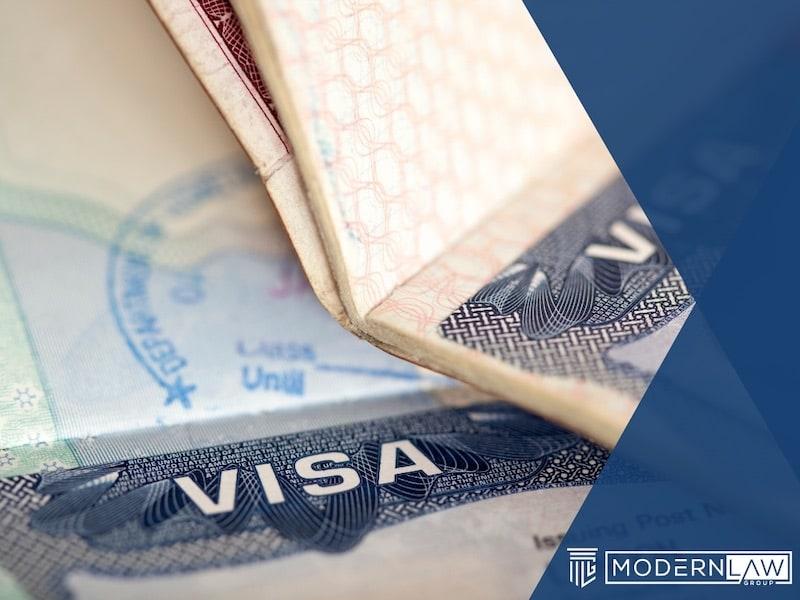Immigrant and Nonimmigrant Visas

If you want to visit or move to the United States, you need a visa. The type you need depends on your purpose for coming to the United States. Because every situation is different, this guide explores the different types of visas available and how to get one.
What Is a Visa?
A visa is an official document that allows you to enter or leave a country. In the United States, there are two main types of visas: immigrant and nonimmigrant.
Who’s Eligible for a Visa?
To be eligible for a visa, you must first meet certain requirements set by the U.S. government. These requirements vary depending on the type of visa you’re applying for. An immigration attorney can give you the guidance you need.
What’s the Difference Between Nonimmigrant Visas and Immigrant Visas?
The main difference between nonimmigrant visas and immigrant visas is that nonimmigrant visas are temporary and immigrant visas can lead to lawful permanent residence in the United States. Both types of visas allow you to stay in the United States for a specific purpose, such as studying, working or traveling.
Types of Nonimmigrant Visas
There are many different types of nonimmigrant visas. The most common are:
- Student visa (F-1 visa)
- Exchange visitor visa (J-1 visa)
- Temporary worker visa (H-1B visa)
- Tourist visa (B-2 visa)
Here’s a closer look at each.
Student Visas
If you want to study in the United States, you need a student visa. To get a student visa, you must first be accepted into a U.S. school. Once you’ve been accepted, the school will give you an I-20 form which you’ll need to apply for your visa.
Exchange Visitor Visas
If you want to participate in a cultural exchange program in the United States, you need an exchange visitor visa. To get an exchange visitor visa, you must first be accepted into a program by a designated sponsor. Once you’ve been accepted, the sponsor will give you a Form DS-2019 which you’ll need to apply for your visa.
Temporary Worker Visas
If you want to work temporarily in the United States, you need a temporary worker visa. There are many different types of temporary worker visas, each with its own requirements. To get a temporary worker visa, you must first have a job offer from a U.S. employer. Once you have a job offer, the employer will start the visa process by filing a petition with the U.S. government.
Tourist Visas
If you want to travel to the United States for leisure, you need a tourist visa. To get a tourist visa, you must first show that you have ties to your home country – such as a job, family, or property – that you’ll return to after your trip. Once you’ve shown this, you’ll need to fill out a visa application and schedule an interview at a U.S. embassy or consulate.
Types of Immigrant Visas

There are two main types of immigrant visas: family-based immigrant visas and employment-based immigrant visas. Here’s a closer look at each.
Family-Based Immigrant Visas
If you have a family member who is a U.S. citizen or lawful permanent resident, you may be eligible for a family-based immigrant visa. To get a family-based immigrant visa, your relative must first file a petition with the U.S. government. Once the petition is approved, you’ll need to fill out a visa application and schedule an interview at a U.S. embassy or consulate.
Immediate Relative Visas
If you have an immediate relative who is a U.S. citizen, you may be eligible for an immediate relative visa. Immediate relatives are defined as spouses, unmarried children under the age of 21, and parents of U.S. citizens. To get an immediate relative visa, your relative must first file a petition with the U.S. government. Once the petition is approved, you’ll need to fill out a visa application and schedule an interview at a U.S. embassy or consulate.
Family Preference Visas
If you have a family member who is a U.S. citizen or lawful permanent resident, you may be eligible for a family preference visa. Family preference visas are reserved for certain relatives of U.S. citizens and lawful permanent residents, such as unmarried children over the age of 21, married children of any age, and siblings of U.S. citizens.
The family preference visa categories are:
- F1: Unmarried sons and daughters of U.S. citizens, and their minor children
- F2: Spouses, minor children and unmarried sons and daughters of permanent residents
- F3: Married sons and daughters of U.S. citizens, and their spouses and minor children
- F4: Siblings of U.S. citizens, and their spouses and minor children
Employment-Based Immigrant Visas
If you have a job offer from a U.S. employer, you may be eligible for an employment-based immigrant visa. To get an employment-based immigrant visa, your employer must first file a petition with the U.S. government. It must meet other requirements, as well – including accepting responsibility for paying you the prevailing wage and meeting other conditions.
What Can You Do With an Immigrant Visa?
If you have an immigrant visa, you may be able to later gain lawful permanent residency in the United States. If you get permanent residency (meaning you get a green card), you will later be allowed to apply for naturalization if you wish.
How to Apply for a Visa
Many people choose to work with an attorney to apply for a visa. That’s because the process can be complex, and mistakes on paperwork and forms required by U.S. Citizenship and Immigration Services (USCIS) can result in denials.
The application process and the fees you must pay depend on the type of visa you’re seeking. Your best bet is to consult with an immigration attorney who can give you the guidance you need.
Do You Need to Talk to an Attorney About Getting a Visa to Come to the U.S.?
If you’re considering a visit or extended stay in the United States, we may be able to help you get the appropriate visa. Call our office today to schedule a consultation with an experienced immigration attorney who can give you the guidance you need.









